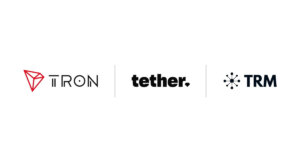 Binance CEO highlights timing of Beijing’s web3 white paper amid China, Hong Kong crypto regulatory changes
Binance CEO highlights timing of Beijing’s web3 white paper amid China, Hong Kong crypto regulatory changes Binance CEO highlights timing of Beijing’s web3 white paper amid China, Hong Kong crypto regulatory changes
The intersection of Beijing's web3 White Paper & Hong Kong's crypto regulation push; a new era for digital assets in the region?

Cover art/illustration via CryptoSlate. Image includes combined content which may include AI-generated content.
On May 27, Beijing released an “Internet 3.0 Innovation and Development” white paper outlining advancements and support for Internet 3.0 (web3) and the metaverse, according to reports from Chinese media, ThePaper.
However, as Binance CEO Changpeng Zhao (CZ) highlighted on Twitter, the white paper’s publication is just days from the upcoming June 1 application opening for Hong Kong cryptocurrency exchanges.
“Interesting timing on this Web 3.0 white paper from the Beijing government tech committee with the June 1st anticipation in Hong Kong.”
The simultaneous release of Beijing’s web3 white paper and Hong Kong’s regulatory push for cryptocurrency exchanges may signal the beginning of a more open approach to digital assets in the region.
Jason Fang from Sora Ventures shared similar thinking on CryptoSlate’s SlateAsia podcast on numerous occasions, with Fang viewing Hong Kong as the “test bed” for crypto regulation in the region. The development, thus, raises questions about the potential implications and impact on the broader cryptocurrency industry in the area.
Web3 white paper.
The report was released as a partnership between the Beijing Municipal Science and Technology Commission and the Zhongguancun Science Park Management Committee, entitled the “Beijing Internet 3.0 Innovation and Development White Paper (2023).” It reportedly emphasizes a commitment to web3 and Metaverse innovations.
According to The Paper, published by state-backed media conglomerate Shanghai United, Chaoyang District plans to invest no less than 100 million yuan annually in special funds to support the construction of the web3 industry ecosystem. This is part of an effort by the district to become a leading region for the “Internet 3.0 industry by 2025.”
Hong Kong opening up to crypto.
Hong Kong’s Financial Secretary Paul Chan announced the completion of the government’s crypto regulation framework earlier this year. The regulatory requirements for virtual asset providers are set to be similar to those for traditional financial institutions from June 1, marking a significant change in the region’s approach to cryptocurrency regulation. In addition, Chan emphasized Hong Kong’s commitment to supporting the growth of the Web3 industry in the region, aiming to become a hub for crypto innovation.
The Hong Kong Securities and Future Commission (SFC) is now easing the requirements for responsible officers (ROs) on cryptocurrency exchanges in preparation for the June 1 application opening for crypto trading licenses under the Securities and Futures Ordinance (SFO) and Anti-Money Laundering and Counter-Terrorist Financing Ordinance (AMLO), as reported by CryptoSlate on May 24.
An RO refers to an individual who holds a crucial position within the senior management of a company. To become an RO, they must obtain a license from the SFC and receive approval as an RO for a specific exchange. Therefore, ROS needs extensive experience as it is a prerequisite for obtaining the required license.
With a current shortage of experienced ROs in the crypto sector, the SFC has revised its requirements so that exchanges now need only two ROs instead of four, adopting a “pragmatic approach” in light of the talent crunch.
All eyes on mainland China?
The crypto community will likely closely monitor the unfolding developments in Beijing and Hong Kong as they may shape the future of the digital asset industry in the region and beyond, with possible benefits including increased innovation and a more transparent regulatory environment, as well as challenges such as meeting compliance requirements and adapting to new regulations.



 CryptoQuant
CryptoQuant 



























































































